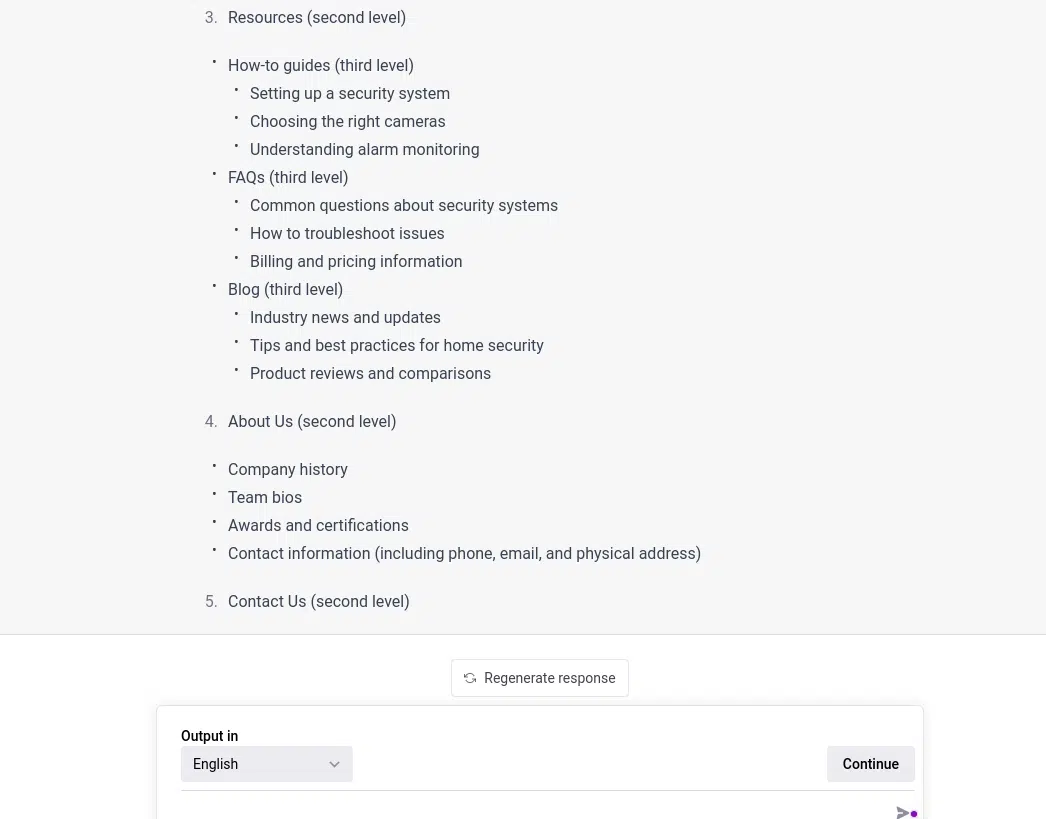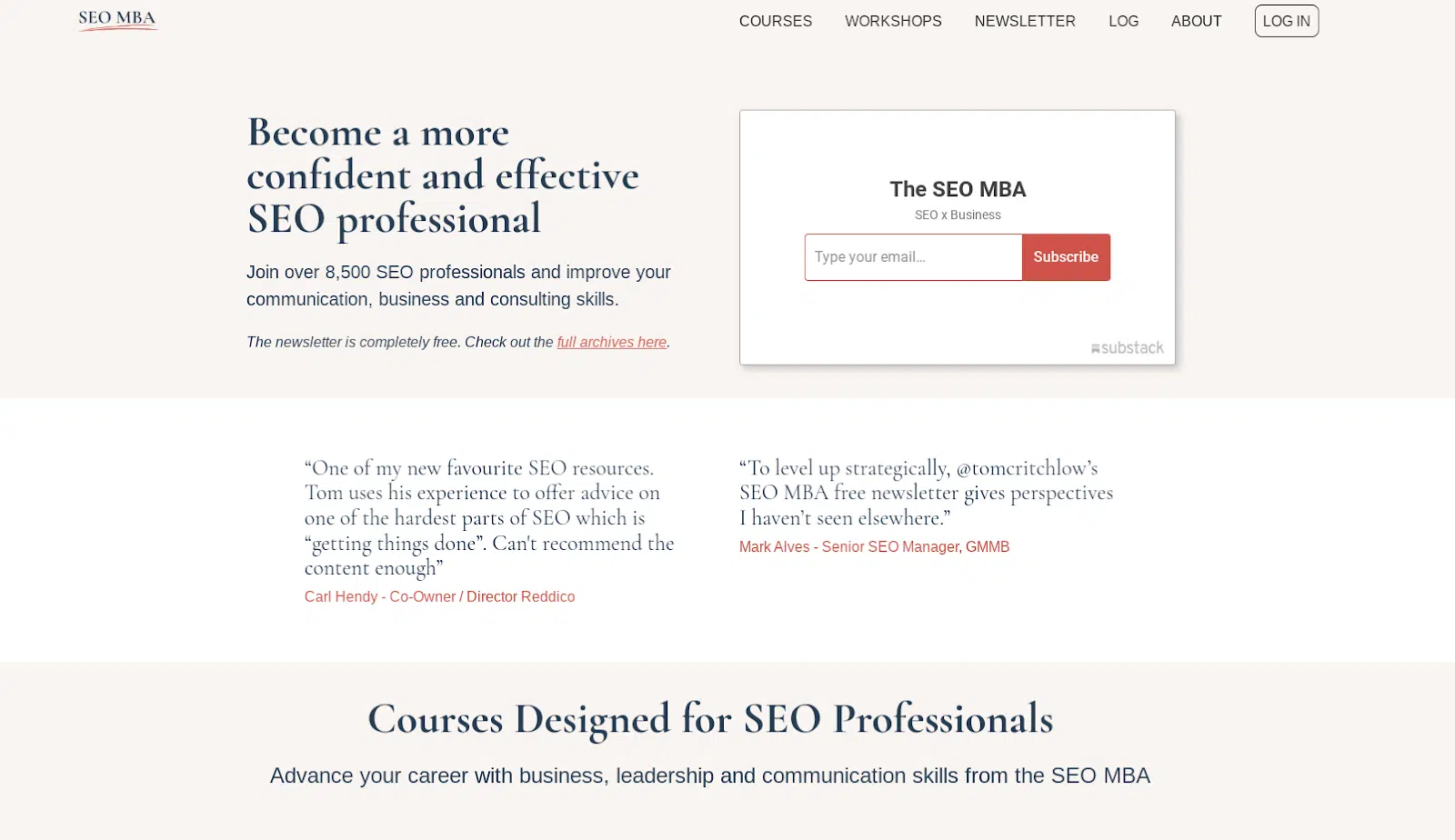7 emerging skills every SEO must master in 2023
In a world where skills are taught for free on YouTube, we must up our game to ensure that SEO gains a bigger piece of the marketing budget.
It’s 2023, and no matter how many “SEO is dead” articles get published, SEO isn’t going anywhere.
Reports suggest that the global SEO market size is expected to reach $122.11 billion in 2028.
But, with that kind of growth, SEO will have to change along with it – as will the skill set of SEO practitioners.
In this article, I’ll cover seven emerging skills that SEOs will need to master to ensure their place at the table in the goliath SEO industry.
Let’s dive in.
1. Value articulation
If you work as a freelance SEO, you’ll have this one down already. But for many on the agency and even client side, it’s a skill too few understand.
We’re living through a potential recession and a cost of living crisis. As such, people and businesses will be careful where budgets go.
No matter what role you currently have, from executive to strategist, you’ll need to be clear about your role’s value and the tasks you undertake – and learn how to articulate that value.
Here’s a line that every SEO needs to master for every task.
- “I’m doing (insert task) because it (explain the value it delivers).”
Because if you can be replaced by an AI tool, you will be.
This brings me to my next skill.
2. Utilizing AI tools
AI tools are exploding by the bucket load, and so are the sheer number of ways that SEOs are figuring out how to leverage machine learning – from keyword and cluster research to meta descriptions and page titles.
SEOs shouldn’t be worried about AI tools. They need to learn how to use them to their advantage.
Check out the Chrome extension AIPRM for ChatGPT.

With its help, you can plan a silo structure for a website in any niche with a few clicks.

And that’s not all. You can conduct keyword research and optimize Google Business Profiles in seconds.

AI tools save you the cognitive load of doing certain SEO tasks, leaving you time to look at the outputs that AI provides and allowing you to tweak, improve and refine what it sends out.
AI tools will never replace SEOs. Rather, they’ll help make SEOs even better.
Reducing the time you spend on tasks that machines can handle gives you more time and mental energy to focus on the areas of SEO that AI can never help with.
But you’ll need to master how to use AI tools within your role.
3. Executive presence
If you don’t already, you need to follow Tom Critchlow online. In his SEO MBA course and content, Critchlow teaches SEOs to have a better executive presence

His newsletter is highly useful and where I first learned about the phrase “executive presence,” which he defines as:
“The ability to present ideas to the c-suite, create a compelling business case for multi-million dollar investments and work cross-functionally to gather buy-in from stakeholders.”
I’ll add that everyone in SEO needs to develop their executive presence to reach the decision-makers above them.
- An SEO executive needs to learn to present their ideas to the account manager.
- The account manager needs to get buy-in from client services.
- And so on.
I like to refer to this skill as the ability to create change within your workplace, regardless of the scale of that change.
Become comfortable with verbalizing and presenting your ideas to the powers that be.
4. Content design
I first learned about content design from the work and book of Sarah Winters.
AI writing tools have sadly removed some of the value of writing and SEO content writing. Design is how we stand out and add value that these tools can’t bring.
But I don’t mean that every SEO needs to go and grab a Canva subscription.
Content design is all about the user/reader experience.
Black text on a white webpage can be hugely influential, and Justin Jackson’s “This is a web page” is a great example of this in action.

We know that people are information foragers. Studies have shown that we scan content to asses its value before assigning cognitive resources to read the rest.
Therefore, SEOs should be looking to use content design to increase the perceived value of their content.
Especially in an AI writing tool era where a 2,000-plus-word article can be created in 30 seconds, winning the reader is going to be a key battle.
SEOs must embrace content design as a tool in their arsenal in 2023.
A good question to ask yourself with every piece of content is, “How can we make this better?”
5. Content editing
Most SEOs hate writing (so do some writers).
But one thing that SEOs tend to despise, even more, is reading content.
I get it. There is no joy in reading a 3,000-word article on a subject you have zero interest in, especially when you paid someone else to write and edit.
It’s a hurdle you’ll have to get over.
For SEOs to succeed in 2023, they must dig into content editing.
There’s a good reason for this – our friend AI.
It doesn’t matter if you have your own team of writers or rely on freelancers (or an agency). You’ll have to get your editing head-on.
Be on the lookout for vague content, fluff, and a lack of research and expertise.
AI tools can help writers and expect them to leverage their use.
But also, be on guard for lazy content creation that has been done with a click of a button.
My top tip, read your content out loud. If it sounds bad, change it.
6. Marketing theory
Back in the old days, the only thing an SEO needed to know was how to generate rankings and traffic.
Today, people are a bit pickier.
Top of funnel, mid-funnel, buyer’s journey, product-led – the list of SEO tactics and terminology seems endless.
What matters in the future of SEO is where it sits at the marketing table.
Traditionally given the scraps of marketing budget, changing views on attribution modeling will mean that organic content will be given more significant credit.
It’s here that AI and machine learning helps us further. By filling in the gaps in the attribution window, we’ll see a more defined picture of how organic search matters in the marketing mix.
But there’s no use just looking at your GA4 report and saying, “Yeah, organic search worked wonders.”
Clients have access to all marketing channels.
TikTok is after your budget.
PPC is after your budget.
Radio ads are after your budget.
TV is after your budget.
Podcasts are after your budget.
You’ll need to prove the value of SEO.
Peter Fields and Les Binet have paved the way to having mature marketing discussions with their work on “The Long and the Short of It.”
Short-term sales activation does indeed bring in sales. But long-term brand marketing makes a more considerable difference to sales over a more extended period.
But where does SEO come into this?
That’s under debate. And it’s why SEOs need to be able to hang out with the marketing world and have grown-up conversations about the importance of SEO.
And for this, you’ll need to learn the lingo.
Brand marketing, direct advertising, mental availability, physical availability, the 4 Ps, econometrics, sophisticated mass marketing, behavioral science, the messy middle, memory architecture, and so much more.
These are all terms that SEOs will need to wrap their heads around.
Most SEOs still need help articulating how SEO actually helps a business.
In a world with vast advertising methods, we need to show clients just how SEO works and be able to explain the marketing science behind it.
7. Strategy
When I see a new client, I often ask them what the strategy behind the last SEO agency’s work was.
Most are unaware. Most were never told. Most have nothing to show.
Our SEO strategy documentation needs to improve.
Most SEO strategies consist of a set of activities that the SEO agency will do, such as:
- Meta descriptions.
- Internal linking.
- 3 articles of 3,000 words.
- And so on.
But a plan is not a strategy, nor is a list of deliverables.
In 2023, SEOs are going to be challenged by clients as marketing budgets are squeezed. And they’ll rightly ask, “Why are we doing this?”
Of course, strategy is challenging.
It’s a statement from the SEO specialist, “We’re going to do X because it’s going to achieve Y.”
You won’t be able to guarantee anything.
You won’t be certain, and that’s why it’s hard.
But welcome to the world of strategy.
Strategy should make you nervous. It’s a theory, a belief.
The clients will ask for some supporting evidence, and that’s fine too.
This is where your case studies and studies of others in the SEO industry come in. It’s why good SEOs are constantly investigating the websites of others.
“This worked for XYZ, which is why we believe it will work for you.”
Also, SEOs should be bold and tweak their strategy. Seeing where something isn’t working and making changes is essential.
What you shouldn’t do is stick to some self-defeating approach because of a fixed SEO ideology.
If it’s not getting the results, change things.
To advance your SEO career, always be learning
The SEO industry is growing – and the skill base of SEOs needs to grow with it.
In a world where every SEO skill and activity is taught for free on YouTube, we’ll need to up our game to ensure that SEO gains a bigger piece of the marketing budget.
Mastering the above seven skills is a start.
Contributing authors are invited to create content for Search Engine Land and are chosen for their expertise and contribution to the search community. Our contributors work under the oversight of the editorial staff and contributions are checked for quality and relevance to our readers. The opinions they express are their own.
Related stories